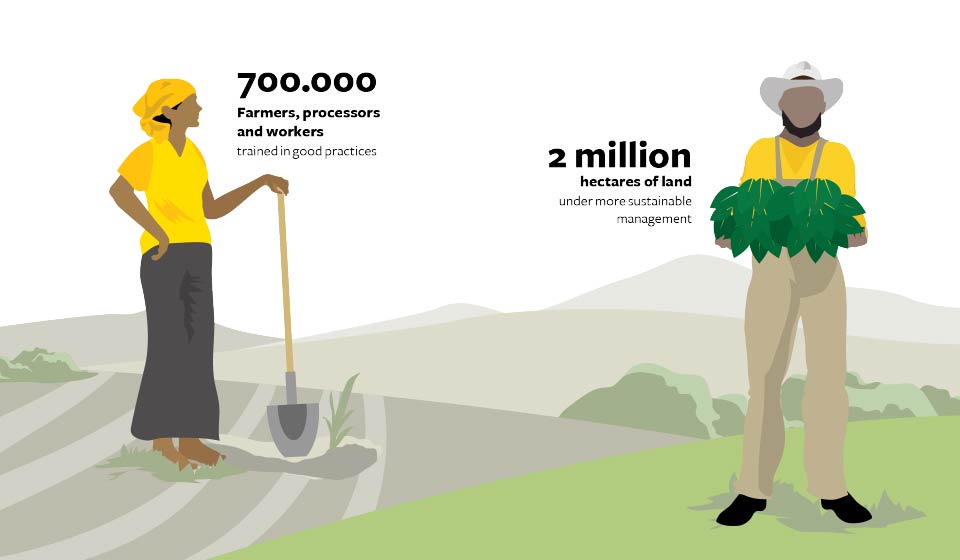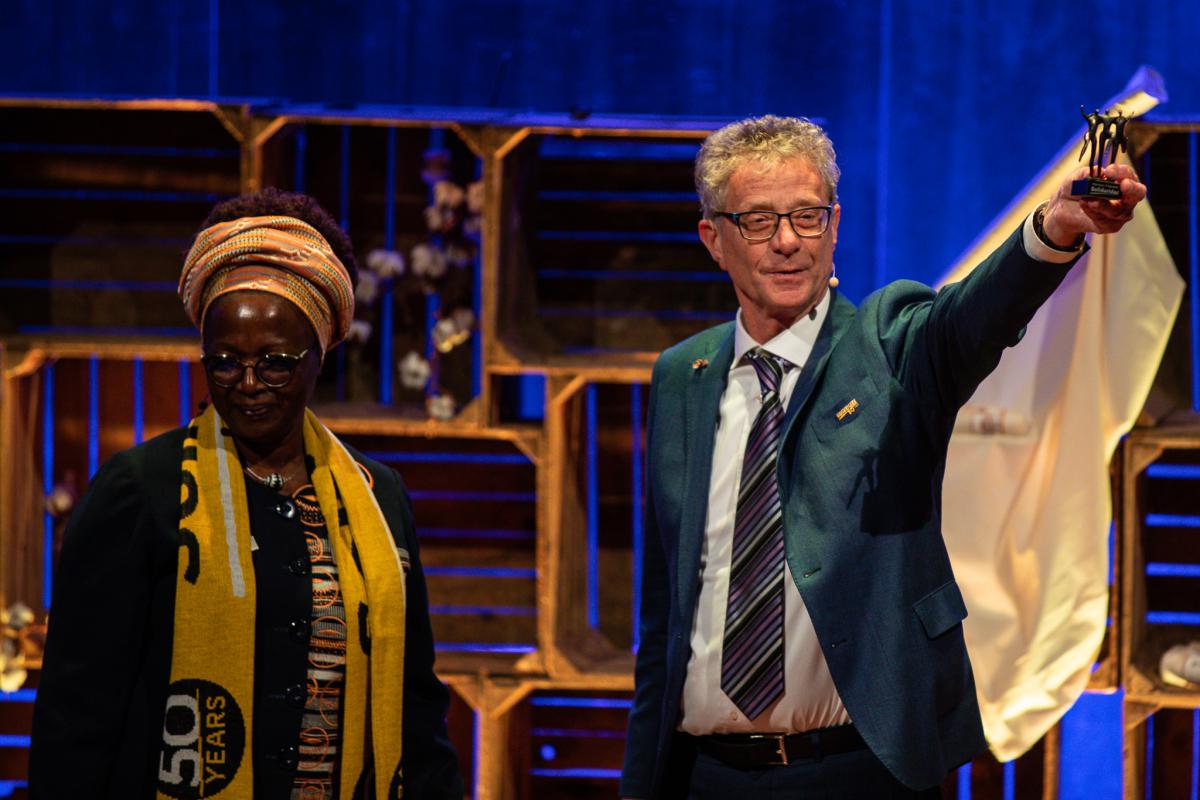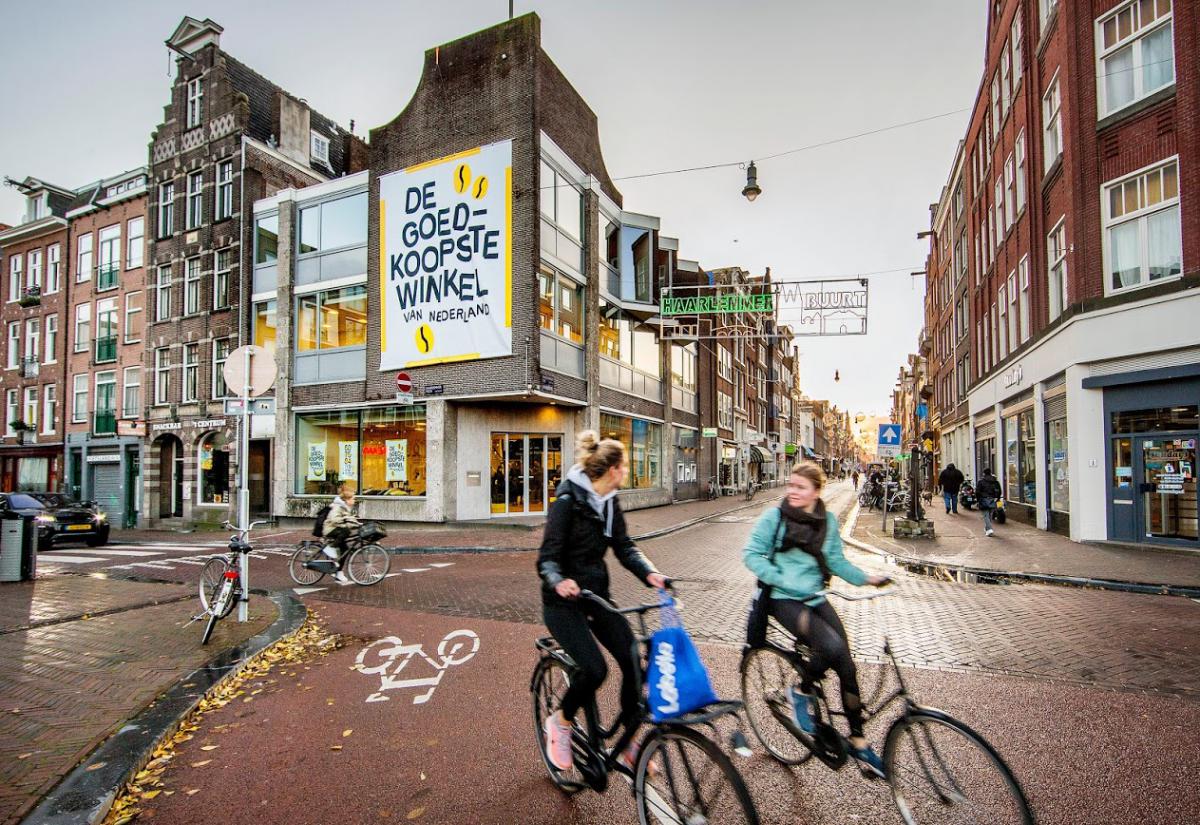
2019 sounds like a remnant of an old age, as the year silently closed with the birth and spread of COVID-19. We are in a new world order, it seems, and our beneficiaries—farmers, miners, and workers in low and middle income countries—are among those most affected. Even amidst the challenges we face now, we are pleased to share some of the highlights from 2019, a very special year for us.
It was the year we celebrated our 50th anniversary. We did so in many ways and in many countries, but the highlight was our event in Utrecht in the Netherlands. This was also the moment we said goodbye to Nico Roozen—our founding father and now Honorary President of the organization.

In 2019, we accelerated our sustainability solutions towards higher levels of speed at scale. With 915 staff, and more boots and brains on the ground than ever, we implemented sustainable supply chain programmes in over 15 commodities across 35 countries. Through these programmes, we have improved the livelihoods of 700,000 families. And 2 million hectares of land has been brought under sustainable management. This has also brought increased resilience to climate change of which farmers are facing the daily consequences.
In 2019, we accelerated our sustainability solutions towards higher levels of speed at scale – Solidaridad Executive Director Jeroen Douglas
The important issue of a living income for smallholder farmers and workers gained more attention this year. On Black Friday, our pop-up shop in Amsterdam exposed the low prices farmers receive for their products. Solidaridad played an active role in drafting policy frameworks and crafting meaningful initiatives with corporate partners to create better value for farmers, miners and workers. Only if private and public actors take concerted action and change power imbalances in the market, value redistribution can solve systemic poverty among producers.

Highlights are many and it is hard to do justice to all the results in many regions and commodities by just mentioning a few.
-
In palm oil we are seeing real systemic sector transformation. We have seen exciting new initiatives arise for locally defined mandatory frameworks for more sustainable production of palm oil. Solidaridad has been one of the important motors behind this movement which has major positive impact both on the environment and on the quality of life of farmers in many of the countries we work with.
-
In cocoa, our 150 rural service centers in West-Africa, have reached out to 40,000 cocoa farmers to support sustainable intensification, rehabilitation, cropping diversification, forest and land governance. And MASO, our in-house training programme for 1600 young farmers, is delivering a whole new generation of business-savvy and sustainable cocoa farmers. That's a real long term impact.
-
A significant part of deforestation is poverty-related. In four of the biggest natural biomes of the world – the Brazilian Amazon, the South American Chaco, the Congo basin, and in the forest remainders in central Java, we have worked on new business opportunities for the 25,000 frontier farmers, giving them a business case away from deforestation.
-
We have also made big steps forward in our digital engagement, now reaching 300,000 farmers and workers with our digital tooling in different ways. In South Africa for example, our cattle grading app is helping Southern African cattle farmers to monitor in detail their herd before bringing them to the market. It also helps investors to know what is the best place and the best time to place loans and equity, and extension officers can tailor their services based on the digital info.
-
In India, we are working with Dutch chemical giant Stahl to support the clean up of the river Ganga by changing the practices of one of the most polluting industries in that area: leather processing. In 2019, we have expanded this programme from Kanpur, India, to the tannery cluster around Kolkata in the east of the country and Bangladesh.

250 of our staff from all over the world gathered in May 2019 to celebrate and to prepare for the 2021-2025 Strategy
I hope this gives you a sense of our work in 2019. For an in-depth look, be sure to read our full annual report online!
Implementation was done with multiple partners from the world science, private sector, civil society, farmer and producer associations, and governments. Our operational budget reached a record €66,2 million, a growth of 19% in relation to 2018. In one decade of Network existence, the organization grew from a bare 18 million turnover, to where we are now. We’ve had the honor and pleasure to work with many donors, and I am so grateful for all the generous support we have received.
Many thanks for your continued support of our work—in whatever form or shape. We couldn't have done this without you and we look forward to taking you into the next phase. With our economy now shaking to its foundations, it’s more relevant than ever.

